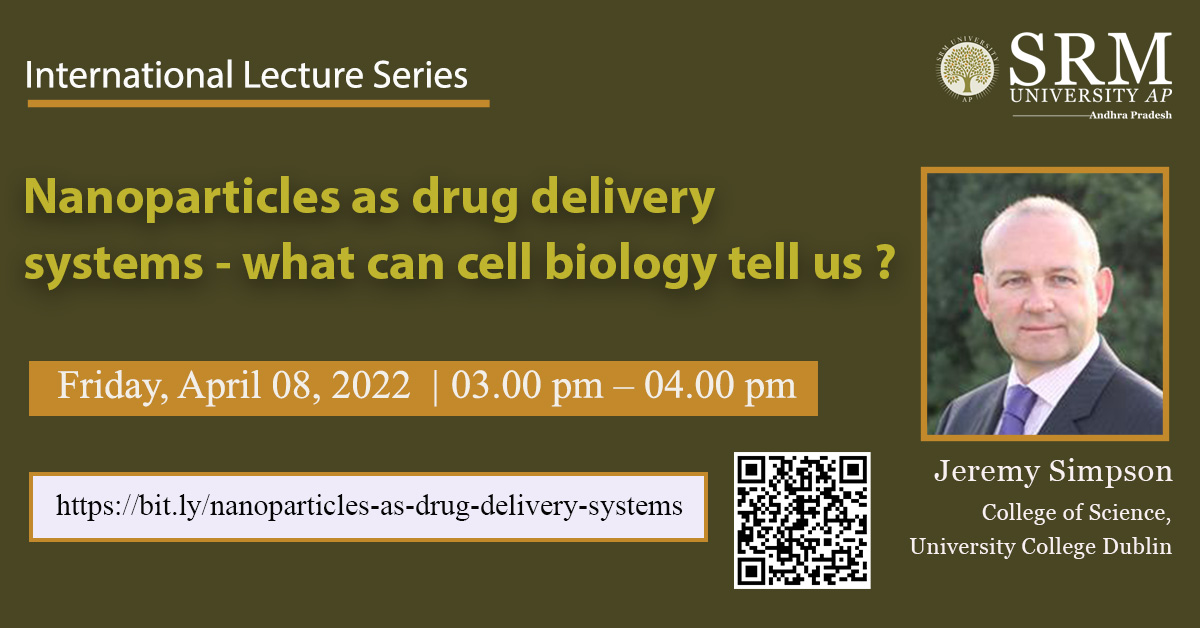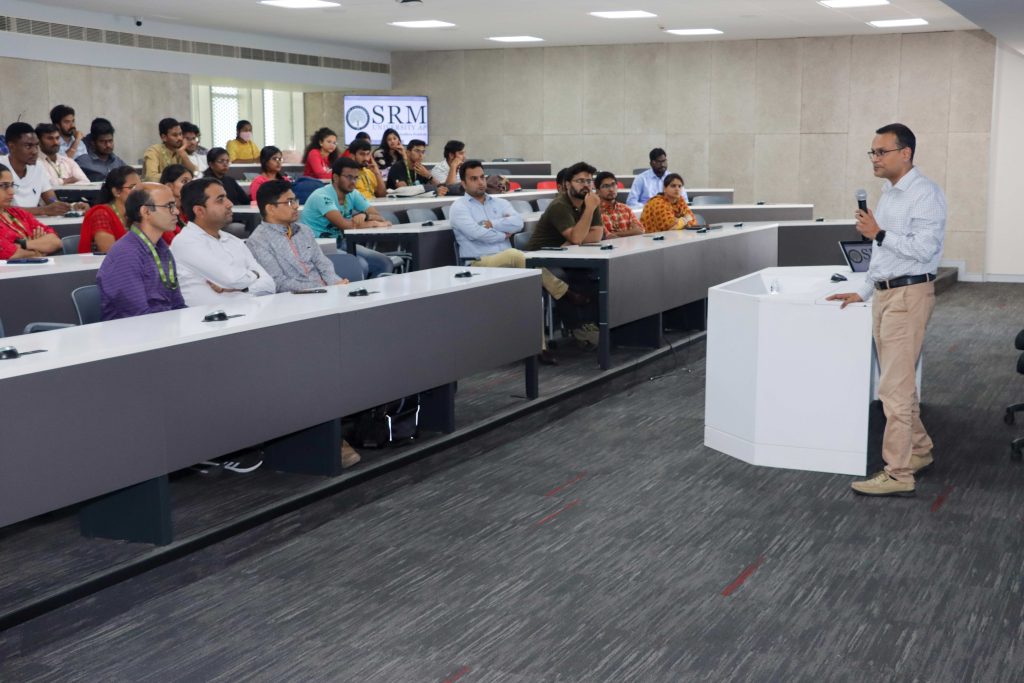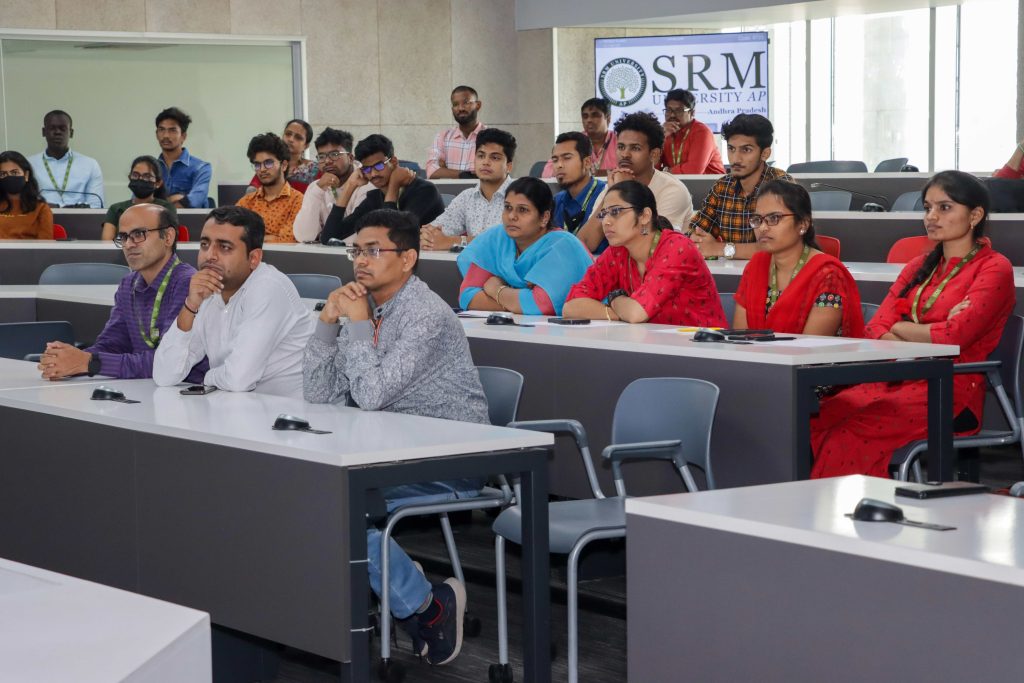“WOMEN’S EMPOWERMENT IS AN ISSUE THAT CROSSES ALL SOCIO ECONOMIC BOUNDARIES.”
Speaking on the subject of women’s empowerment and gender biases in all walks of life, Member of Parliament, Meenakshi Lekhi made it a point to explain how the notion applies not only to those who have succeeded in specialised careers like space research.
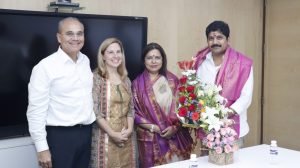 “Empowerment cannot be viewed from the narrow angle of haves and have nots. Women in power can also suffer from patriarchy. Empowerment means not having to depend on others, it is not linked to how one dresses or what one does for a living. It is about mental equality, knowing where you belong, how you express yourself, being self-assured, not letting external factors impede one’s growth and freedom.”
“Empowerment cannot be viewed from the narrow angle of haves and have nots. Women in power can also suffer from patriarchy. Empowerment means not having to depend on others, it is not linked to how one dresses or what one does for a living. It is about mental equality, knowing where you belong, how you express yourself, being self-assured, not letting external factors impede one’s growth and freedom.”
On the subject of government programs that empower women directly (as individuals and responsible for their families), Ms. Lekhi drew the distinction between programs like ICDS (Integrated Child Development Services) and current programs like Ujjwala Yojana, Jan Dhan Yojna, Mudra Ayojana, and Awas Yojana where subsidies and financial assistance goes directly in the hands of women. “These programs demonstrate our trust in the capabilities of women to take care of themselves and their families. It is about helping the most vulnerable, providing help where it has not reached before.”
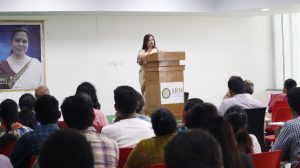 Ms. Lekhi is a Supreme Court of India lawyer. In July 2016, she was appointed as chairperson of the Committee on Privileges of the Lok Sabha in Parliament. She was awarded the “Best Debut Women Parliamentarian” award by Lokmat in 2017. She has led the debate on a wide variety of matters such as bails, trials, appeals, criminal writs, the Prevention of Corruption Act/Customs Act/FERA prosecutions, domestic violence and Family Law dispute. Lekhi has been a part of the Drafting Committees for Bills like “Women’s Reservation Bill” and “Sexual Harassment of Women at Workplace (Prevention, Prohibition and Redressal) Bill”. She also played an active role in the drafting of the Criminal Law (Amendment) Bill, 2013 which provided for amending the existing laws related to sexual violence. She has been in the National Commission for Women’s (NCW) special Committee, and Chairperson of Special Task Force on Women Empowerment Association.
Ms. Lekhi is a Supreme Court of India lawyer. In July 2016, she was appointed as chairperson of the Committee on Privileges of the Lok Sabha in Parliament. She was awarded the “Best Debut Women Parliamentarian” award by Lokmat in 2017. She has led the debate on a wide variety of matters such as bails, trials, appeals, criminal writs, the Prevention of Corruption Act/Customs Act/FERA prosecutions, domestic violence and Family Law dispute. Lekhi has been a part of the Drafting Committees for Bills like “Women’s Reservation Bill” and “Sexual Harassment of Women at Workplace (Prevention, Prohibition and Redressal) Bill”. She also played an active role in the drafting of the Criminal Law (Amendment) Bill, 2013 which provided for amending the existing laws related to sexual violence. She has been in the National Commission for Women’s (NCW) special Committee, and Chairperson of Special Task Force on Women Empowerment Association.
- Published in Invited Talks
Advanced materials is a truly cross-cutting technology for all defence systems.” Dr. Samir Kamat, DRDO
20th September 2019: Dr. Samir V. Kamat, Director General, DRDO, New Delhi, delivered a University Distinguished Lecture on “Advanced Materials for future Defense Systems: A DRDO Perspective” for students, faculty members and research scholars. He began with a brief overview on the functioning of various DRDO labs around our country, activities and achievements in aeronautics, missile system, hypersonic, weapons, armour, naval and life support systems. He also spoke of current and future challenges inviting bright young minds at the university to take part in shaping the future.
As to advanced materials that DRDO looking for, Dr. Kamat spoke of high strength and self-healing composites, higher temperature and corrosion resistance materials for aeronautical & naval structures and light weight armour materials.
According to Dr. Kamat, advances in materials are fundamental enablers for defence system capabilities and to meet the needs of the sector. He pointed to new areas of focus such as computational materials & materials genome and additive manufacturing which he described as a future game changer in the field of materials.
Presentations were also delivered by faculty members, Dr. Sabyasachi Mukhopdaya, Dr. G. S. Vinod Kumar, Prof. Ranjit Thapa, who had presented their group works on Materials Science and Engineering, Computational materials and Centre for Materials Genome. Dr. Samir Kamat encouraged SRM-AP to move forward to establish in collaboration with DRDO a Centre for Additive Manufacturing and Centre for Materials Genome.
Dr. Samir V. Kamat received his B.Tech (Honours) in Metallurgical Engineering from IIT Kharagpur in 1985 and Ph.D from Ohio State University in 1988. He is currently the Director General, Naval Systems and Materials, Defence Research and Development Organization (DRDO). He has also served as a Scientist and Director at Defence Metallurgical Research Laboratory, Hyderabad where he worked on the development of various advanced materials for defence applications. He has published more than 185 papers in peer reviewed International Journals and has received several DRDO and National Level Awards. He is a Fellow of Indian Academy of Engineering (INAE) and Institution of Engineers, India (IEI)
- Published in Invited Talks
SRM AP students under the guidance of Dr. Sumon Sinha attempts to offer cost-effective solution to weather forecast problems
Faculty members of SRM AP-Dr. Venkata Nori and Dr. Jayaprakash Panchagnula (Department of Mechanical Engineering) and Dr. Anirban Ghosh (Department of Electronics and Communication Engineering) invited the celebrated researcher Dr. Sumon Sinha to visit our campus and conduct a three-day workshop on “Unmanned Aerial Vehicle (UAV) Design for Low Altitude Weather Data Acquisition”. Dr. Sinha did his B.Tech (Hons.) in Mechanical Engineering from IIT Kharagpur and his MS and Ph. D. from the University of Miami with specialization in Fluid Dynamics. After being associated as faculty in eminent institutes in the US including University of Mississippi, he delved into his business venture, Sinhatech in 2007 to provide innovative solutions to unresolved technical issues in Canada, USA, Japan, etc. Through his intuitive understanding of the subject, he developed and patented the Composite Flexible Surface Deturbulator to obtain higher controllability of drones in a high crosswind.

Dr. Sinha aims to offer solutions to certain fundamental problems in India through his expertise in aerodynamics. With his motivation to serve the country he has his roots attached to; he aims to build a team that would assist him to accomplish his dream project of using drones to gather weather reports on the sea surface at low altitude as well as general weather forecast data. “The sensors attached to the drone augmented with the deturbulator can gather critical data for accurate prediction of cyclones in the sea which the presently used Doppler Radar can only approximate”, says Dr. Sinha providing solutions to issues related to storm prediction. He further adds, “In India, weather stations use immensely expensive and non-reusable helium balloons embedded with sensors to capture data for general weather reports”. He intends to offer a cost-effective solution to these problems with reusable and less expensive drones.

On 3rd January, our faculty shortlisted a team of 15 enthusiastic students who worked on this assignment alongside Dr. Sinha. When asked what intrigued them regarding the workshop, N. Venkata Kishore Kumar Reddy (2nd year, ECE) says, “My father is in the Indian army which made me aspire to build a drone someday that can work as a spy for the army”.
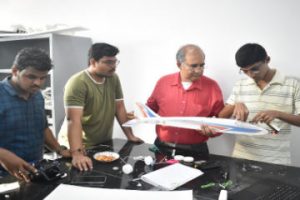
The workshop began with a lecture by Dr. Sinha where the students got a glimpse of the engineering concepts behind building a drone which can go up to 120 feet to gather atmospheric data.
Later, he demonstrated the flight of the drone where the students got hands-on experience in controlling the device.
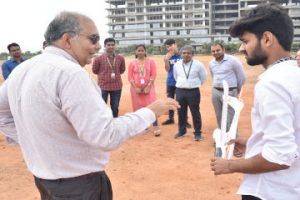 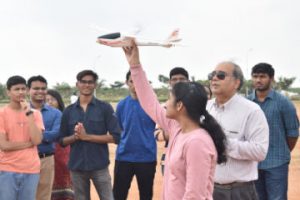 |
“I learned a lot about UAV from Dr. Sumon Sinha who is excellent in explaining the concept, he is also brilliant in flying RC objects. This knowledge will help us identify the various applications of the fixed wing plane-UAV in the future”, expresses M Raviteja (2nd year, ME).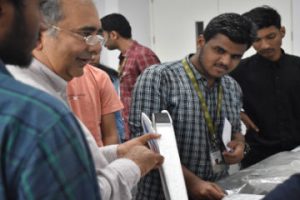
The students were then divided into three groups and were assigned the task of building a drone each.
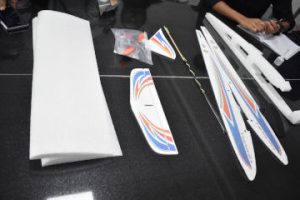 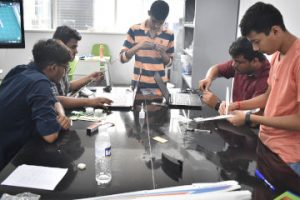 |
“The interactive sessions improved my knowledge on drones, air vehicles, and the basic aerodynamic science that works behind the flying objects” speaks Krishna Teja Vinnakota (1st year-CSE). On the last day of the workshop, the teams managed to develop three drones, one of which was embedded with the sensors that accurately captured data on temperature, humidity, atmospheric pressure, altitude, latitude, longitude, and dynamic pressure. “After having experience with the basic technicalities of building the drones, it is on us to improve its functionality and make it more usable” conforms Kishore who has already made an Agri Drone which can throw seeds coated with fertilizers in farming lands from a height of 4.5 meters above the ground. Inspired and educated from the workshop, our students plan to build a quadcopter in their next venture.

- Published in Invited Talks
Dr. Monika Setia, Fulbright India, conducts a session with the researchers
Giving leads to aspirational scholars
Dr. Monika Setia, Regional Officer, Fulbright India, United States-India Educational Foundation, visited SRM University, Andhra Pradesh for a talk on the fellowships offered by the foundation. This binational body is renowned for attracting the best minds and providing them the adequate infrastructure to bring out exemplary research results. The fellowships are equally funded by the foundation and the government of India under the flagship of Fulbright-Nehru fellowships for Indian citizens. Every year among hundreds of applicants, few scholars with exceptional acumen are sent to the United States to pursue research in collaboration with the US-based universities and institutes.

Dr. Monika speaks of the 4 primary activities of Fulbright, which is to administer, promote dialogue between participants, offer advice to aspirants, and establish links between the US and India. She emphasizes, “Looking beyond academic excellence, Fulbright fosters cultural exchange between the two nations. The culturally adaptable interdisciplinary researchers driven to contribute to the society, community, and nationality are curated by the selection panelists of Fulbright”.

The attendees of the session were given a heads up regarding several fellowship programs dedicated to master’s students, doctoral students, and post-doctoral scholars. The process of application, eligibility criteria, project timelines were thoroughly explained to the faculty and Ph.D. scholars of SRM AP, adhering to which will escalate their chance of being selected for the prestigious fellowship. The fellowship will give foreign exposure to the scholars, enable them to work with excellent infrastructure in the US, and use their research inferences to improve the society as a whole, across national boundaries.
- Published in Invited Talks
Crack exams with ease: lessons from the maestro
Department of Electronics and Communication Engineering organises Invited Talk to prepare students for the upcoming competitive exams
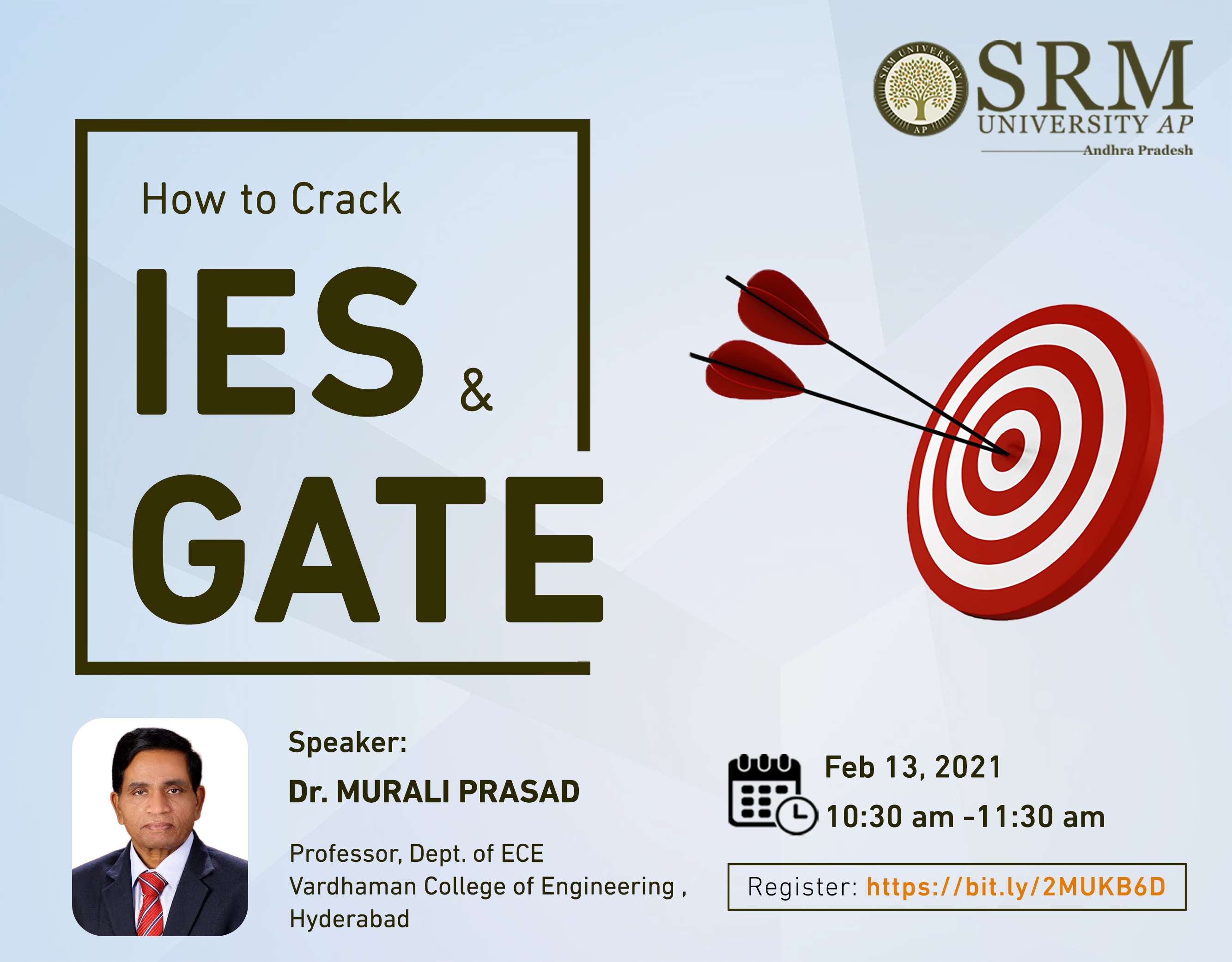 Higher Studies or Job? Students are often torn between these two after the completion of their undergraduate studies. Whereas getting a job after B.E./B.Tech is not that difficult, but securing one’s dream job may not be that easy. Some students prefer to take admission in a reputed institution and pursue higher studies, some might want to join R&D in well-established companies. A few might be even interested in securing employment in the public sector. The choices vary from one student to another depending on their merit, financial stability and personal preferences. SRM University-AP always encourages students to go for their choices. A good pay package is only useful when it comes with a job of one’s inclination. However, first of all, one has to be aware of the choices he/she has. Department of Electronics and Communication Engineering organises an invited talk on the two of the most sought after opportunities for engineers after their undergraduate studies- Indian engineering Services and GATE.
Higher Studies or Job? Students are often torn between these two after the completion of their undergraduate studies. Whereas getting a job after B.E./B.Tech is not that difficult, but securing one’s dream job may not be that easy. Some students prefer to take admission in a reputed institution and pursue higher studies, some might want to join R&D in well-established companies. A few might be even interested in securing employment in the public sector. The choices vary from one student to another depending on their merit, financial stability and personal preferences. SRM University-AP always encourages students to go for their choices. A good pay package is only useful when it comes with a job of one’s inclination. However, first of all, one has to be aware of the choices he/she has. Department of Electronics and Communication Engineering organises an invited talk on the two of the most sought after opportunities for engineers after their undergraduate studies- Indian engineering Services and GATE.
Indian Engineering Service offers highly prestigious employment under the Government of India. The IES is a very specialised and technical service. Only engineering graduates from recognised universities are eligible to take the entrance examination. Even postgraduates with specific specialisations such as wireless communications, radio engineering, electronics, or radiophysics are eligible to apply in certain posts. A career in Indian Engineering Services allows an engineer to administer a large segment of technical challenges in the public sector economy, consisting of Indian Railways, Power, Telecommunications, Central Water engineering, and Defence service of Engineers, Central Engineering Service.
On the other hand, the purpose of the GATE exam is to test students’ knowledge and understanding of their undergraduate level subjects in Engineering and Sciences. A misconception among the students is that the GATE exam is only necessary for the ME. /M. Tech aspirants who want to pursue a career in academia. But, the GATE score of the candidate is also valued by several public sector undertakings (PSU) for recruiting graduate engineers in entry-level positions or to be enlisted in the Fellowship Programs of CSIR or applying for scholarships in ME/M.Tech, and many more.
However, qualifying these examinations is not a piece of cake. It requires rigorous planning, perseverance and above all, hard work. But, there is always some strategic points which can make a student stand out in the exams. Dr Murali Prasad, the distinguished guest of the session, will brief you on some strategic points that will help you immensely in cracking the examinations. Dr Prasad has over 30 years of teaching experience, especially for competitive exams like GATE, IES in ACE Engineering Academy, Hyderabad. He has completed his graduation in engineering from The Institution of Engineers, Calcutta. He pursued his M tech from Pondicherry Engineering College and later obtained his PhD in WiMAX from JNTU Anantapur. Dr Prasad has published six patents and currently working as a Professor at Vardhaman College of Engineering, Hyderabad. Join the session tomorrow at 10.30 am and learn the masterstrokes from the expert to crack competitive exams like GATE and IES.
- Published in Departmental Events, ECE Events, Events, Invited Talks
Navier stokes equations: A million dollar open problem
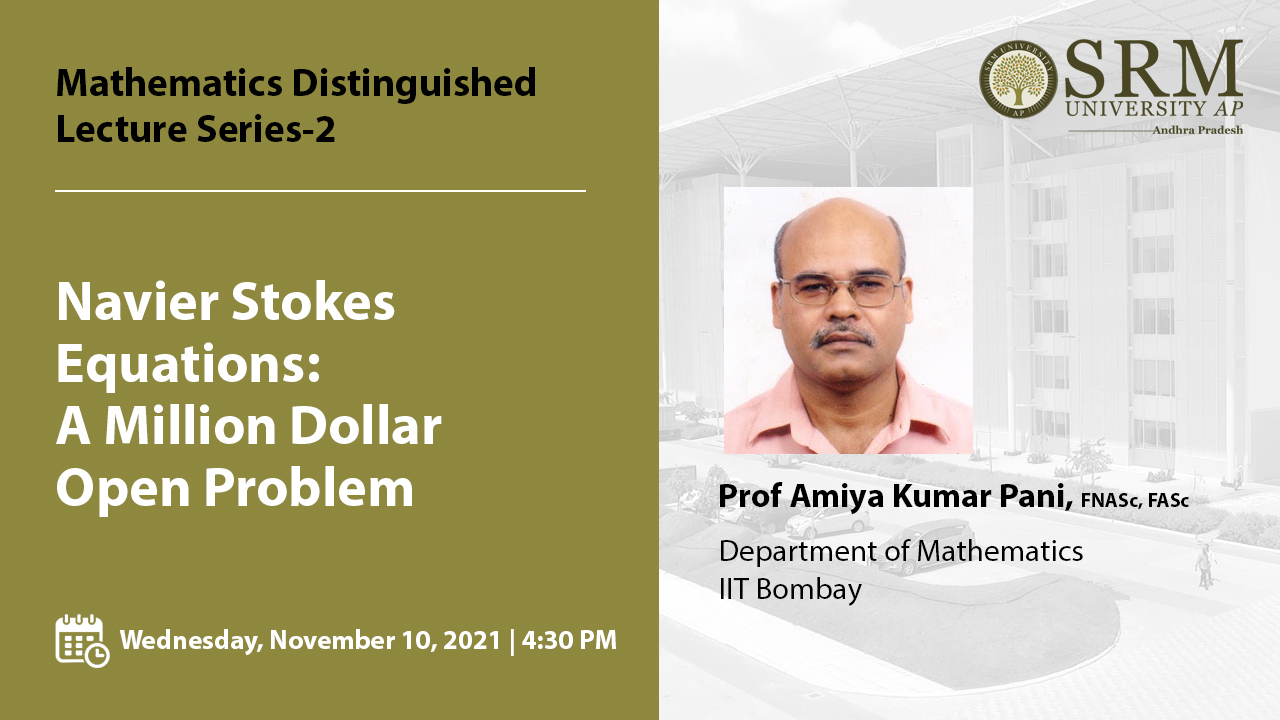 The second lecture in the Distinguished Lecture Series organised by the Department of Mathematics at SRM University-AP will be held on November 10, 2021, at 4.30 pm. Prof Amiya Kumar Pani from the Department of Mathematics, IIT Bombay, will elucidate the lecture on the topic “Navier Stokes Equations: A Million Dollar Open Problem”.
The second lecture in the Distinguished Lecture Series organised by the Department of Mathematics at SRM University-AP will be held on November 10, 2021, at 4.30 pm. Prof Amiya Kumar Pani from the Department of Mathematics, IIT Bombay, will elucidate the lecture on the topic “Navier Stokes Equations: A Million Dollar Open Problem”.
On August 8, 1900, David Hilbert delivered his famous lecture about 23 open mathematical problems at the second International Congress of Mathematicians in Paris. This influenced the decision of a recently formed Clay Mathematical Institute (CMI) to announce the seven Millennium Prize Problems in the CMI Millennium Meeting held on May 24, 2000. One such problem is the theme of the present talk. Now it is widely accepted that the motion of an incompressible viscous fluid with moderate velocity is described by the Navier-Stokes Equations. Although these equations were written down in the 19th century, the existing mathematical results are not adequate to unfold the secrets hidden in the Navier-Stokes equations.
In this talk, Prof Amiya shall concentrate on a brief description of this problem, mathematical model, a quick look at history, what is known at this point, some important approaches and what is possibly needed. Finally, he will conclude the talk with a note on the present state of Indian applied mathematics and whether we are ready to contribute towards this millennium problem.
About the Speaker:
Prof Amiya K Pani is Professor at IIT, Bombay. He is well known for his research work in the area of numerical approximations of partial differential equations. His expertise includes construction, stability, and convergence analysis of finite element methods, finite difference schemes, orthogonal spline collocation methods for free boundary problems, partial integrodifferential equations, coupled equations in Oil Reservoir Studies, evolutionary variational inequalities, and scientific computations for industrial applications. Professor Pani is a fellow of the Indian Academy of Sciences and National Academy of Sciences, India. He was awarded the Best Young Mathematician for his outstanding contributions to Numerical Analysis, Partial Differential Equations, and Industrial Mathematics by the Indian Society for Industrial and Applied Mathematics (ISIAM).
Tune in to this intriguing lecture on Navier stokes equations on November 10, 2021, at 4.30 pm.
- Published in Departmental Events, Events, Invited Talks, Math Events
Why India needs innovation and leadership?
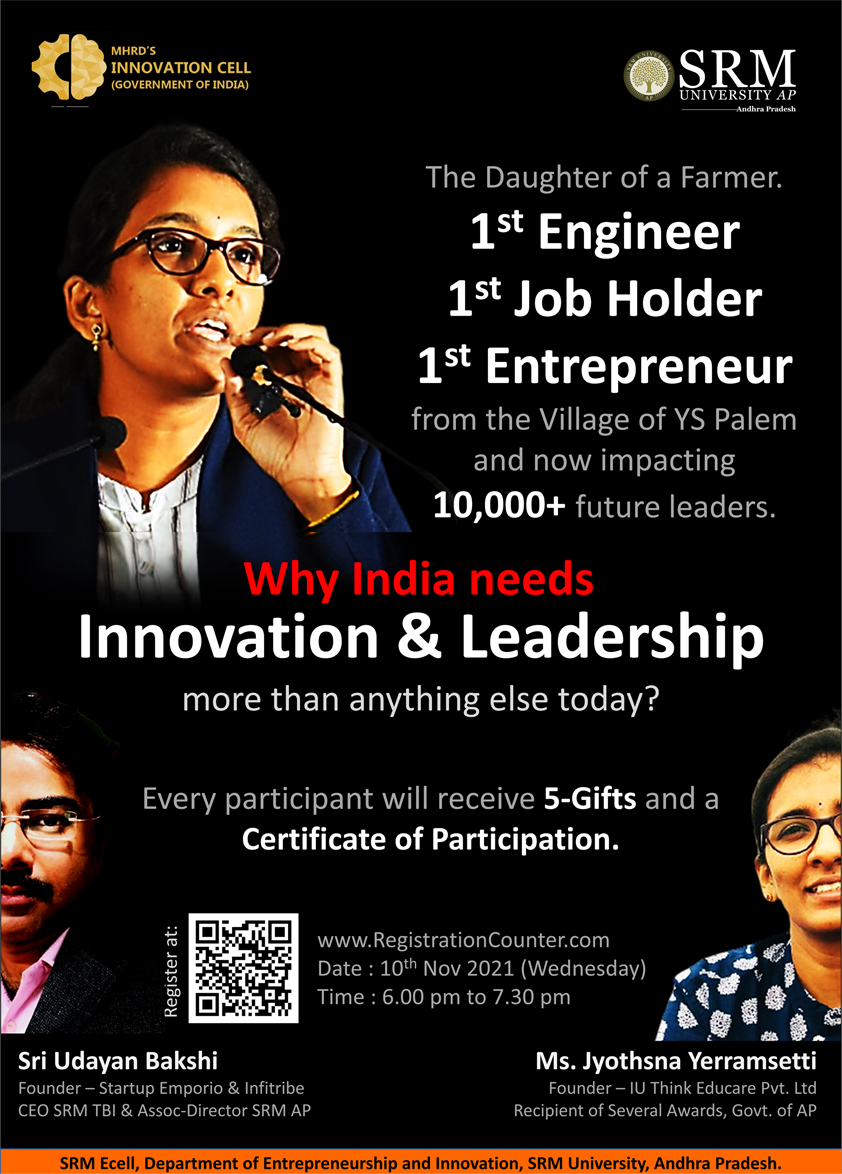 To nurture and cultivate innovation, there are no best-practice solutions. The structures and processes that many leaders employ instinctively to foster it are vital but insufficient. The Department of Entrepreneurship and Innovation at SRM University-AP is organising an influential session by Jyothsna Yerramsetti, CEO & Co-Founder- IUThink, on November 10, 2021, at 6.00 pm to promote and integrate innovative leadership among students. All participants will be given various gifts and certificates and participation.
To nurture and cultivate innovation, there are no best-practice solutions. The structures and processes that many leaders employ instinctively to foster it are vital but insufficient. The Department of Entrepreneurship and Innovation at SRM University-AP is organising an influential session by Jyothsna Yerramsetti, CEO & Co-Founder- IUThink, on November 10, 2021, at 6.00 pm to promote and integrate innovative leadership among students. All participants will be given various gifts and certificates and participation.
IUThink is an organisation with a vision to provide a platform for grassroots, student and rural Innovators. It focuses on connecting students, innovators, startups and entrepreneurs to mentors, investors and creates opportunities to network with successful entrepreneurs. IUThink organises Startup/Innovation Summits where innovators and startups get a chance to exhibit their ideas and also provides entrepreneurial functionality support for college incubations. The main objective of IUThink is to create a proper Start-up Ecosystem to connect all the startups/entrepreneurs. In 2019-2021 it organised 3 innovation summits and connected 5000+ students/innovators/startups/ entrepreneurs and created a huge impact by organising awareness programmes.
About the Speaker:
Jyothsna Yerramsetti, CEO & Co-Founder- IUThink completed Graduation in Information Technology 2013. She worked as a software engineer for 5 years in one of the big MNCs at Hyderabad and established her startup company “IUThink” in 2018 August along with Cofounder Divya Kalikota. IUThink encourages startups, entrepreneurs and innovators. She is a recipient of the “Outstanding Educator” by South India Women Achievers Award (SIWAA) in Chennai and was recognised as “Young Leader” by Niti Manthan, New Delhi.
Unlock the innovator inside you with SRM E-Cell, grabbing gifts and certificates! Stay tuned to this inspiring session on November 10, 2021, at 6.00 pm.
- Published in Events, IDEA Events, Invited Talks
Nanoparticles as drug delivery systems – what can cell biology tell us?
Guest lectures are a great opportunity for students to learn what the rest of the world thinks/researches. As a part of the International Lecture Series, The Office of International Relations and Higher Studies invites Prof Jeremy Simpson from University College, Dublin to engage the students on the topic “Nanoparticles as drug delivery systems – what can cell biology tell us?”
Nanotechnology advancements have resulted in the creation of related fields such as nanoparticle synthesis and biomedical applications. Patients and doctors alike have been given hope by nanotechnology-driven advancements in treating complicated medical problems.
Join this informative lecture on April 08, 2022, at 3.00 pm and get enlightened!
About the Speaker
Jeremy Simpson carried out his PhD work at the University of Warwick (UK), working on the trafficking of protein toxins in mammalian cells under the supervision of Profs. Mike Lord and Lynne Roberts. After post-doctoral work at the Scripps Research Institute in San Diego (USA) in the lab of Dr Bill Balch and the ICRF in London (UK) in the lab of Dr Rainer Pepperkok, he was awarded a long term EMBO fellowship allowing him to move to the European Molecular Biology Laboratory (EMBL) in Heidelberg (Germany). For over 9 years he worked at EMBL developing and applying novel high-throughput imaging approaches to study protein localisation and membrane traffic. In 2008 he was appointed as Full Professor of Cell Biology at University College Dublin, Ireland. His lab currently applies high-throughput imaging technologies to study various membrane trafficking pathways in the cell, a number of human diseases associated with defects in the endomembrane system, and the molecular basis of how synthetic nanoparticles enter cells and induce toxicity. His lab also has expertise in the growth and analysis of 3D cell models, including spheroids and organoids, and their imaging and analysis using high-content screening microscopy. His lab also develops novel software tools and approaches for image analysis. He has authored 120 peer-reviewed articles, including articles in Nature Cell Biology and Nature Methods, and a number of book chapters. He is a Fellow of the UCD Conway Institute and runs the UCD Cell Screening Laboratory (www.ucd.ie/hcs). Additional academic roles within UCD have included Head of Subject for the Cell and Molecular Biology Programme, Head of the School of Biology and Environmental Science, and Vice-Principal (International) of the UCD College of Science. In September 2021 he took up the role of College Principal and Dean of Science for the UCD College of Science.
- Published in Events, International Relations, Invited Talks, IR-Events, Webinars
DST-INSPIRE fellowship expert committee meeting to be held at SRM University-AP
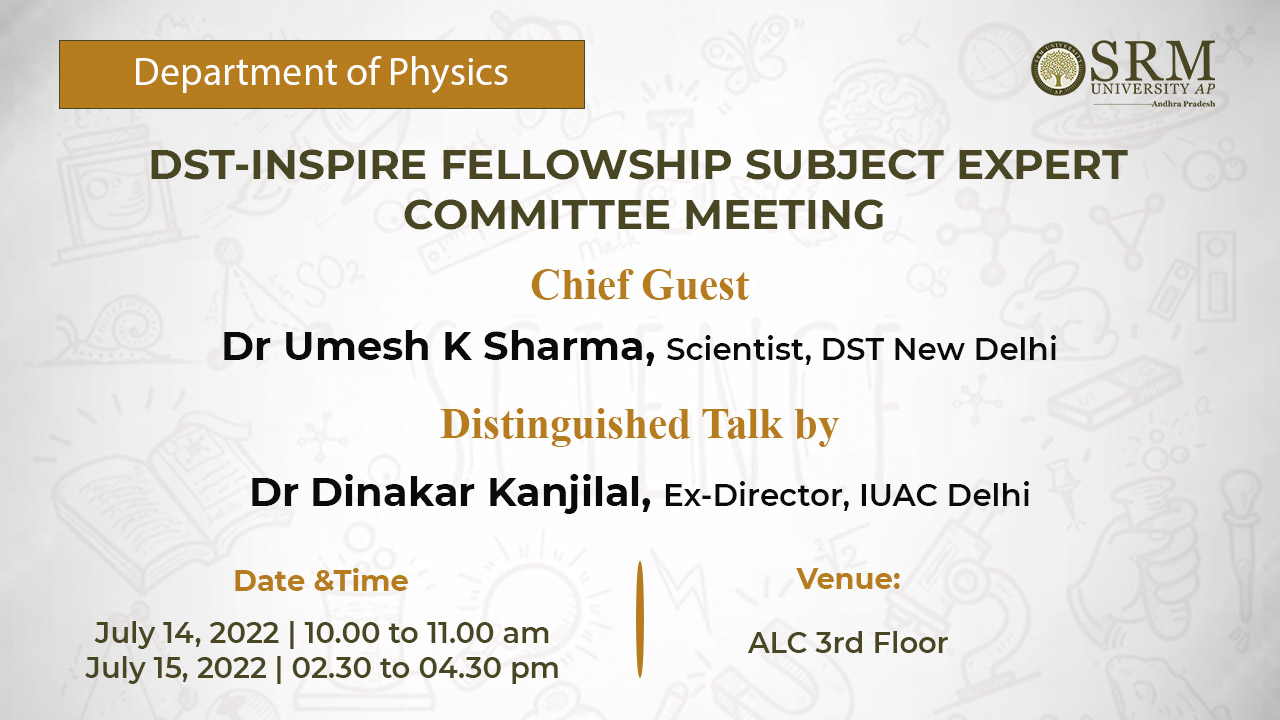
“Innovation in Science Pursuit for Inspired Research” (INSPIRE) programme is a flagship initiative of the Department of Science and Technology (DST) to persuade young and talented science enthusiasts to pursue various fields of sciences and instigate quality research to strengthen the Science and Technology network of the country.
INSPIRE fellowship is one of the important components under the purview of INSPIRE programme to attract Science graduates to undertake Doctoral research in both basic and applied sciences. The fellowship enables the aspirants to pursue research at any recognized university or institute in India.
SRM University-AP is glad to host the subject expert committee meeting on July 14 & 15, 2022, to select the meritorious candidates for the DST-INSPIRE fellowship 2022 to pursue PhD in physics at any recognized institute across the country. During the meeting, the expert committee will list out the most deserving candidates among scores of applicants from all over the country.
As part of the event, an interactive session has been scheduled with the eminent scientist Dr Umesh K Sharma, DST New Delhi. He would cast light on the scopes and opportunities of pursuing doctorate with an INSPIRE fellowship. A talk by Prof Dinakar Kanjilal, Ex-Director IUAC Delhi, will also be organized to give the faculty and students a comprehensive understanding of the same.
Distinguished Members of the DST INSPIRE Meeting
Dr Umesh K Sharma
Dr Dinakar Kanjilal
Dr G Vijaya Prakash
Dr Anandamayee Tej
Dr Rajendra
Dr Arijit Chowdhuri
- Published in Departmental Events, Events, Invited Talks, Physics
Electrical Engineering – Your Way Forward!
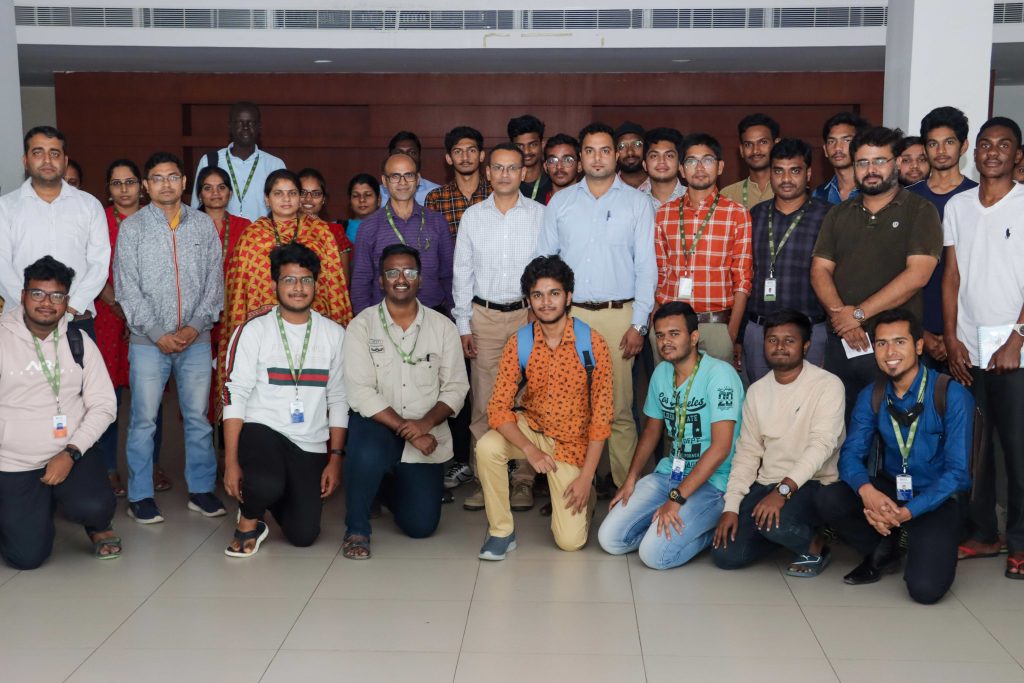
Electrical and Electronic Engineering is a core engineering course in the market with an aspiring number of students securing admissions to reputed universities. Yet with the advent of the modern software era, the dilemma of future job opportunities for Electrical Engineers has been buzzing around the students of the field. The Power & Control Society, Department of Electrical and Electronic Engineering organised an invited talk on February 02, 2023, on “Career Opportunities for Electrical Engineers” to empower and enlighten young graduates on potential career prospects in the field. Prof. Praveen Kumar of Electrical Engineering, Indian Institute of Technology, Guwahati was the distinguished speaker of the session.
Some of the frequently asked questions among Electrical Engineers are whether selecting Electrical Engineering as a core course instead of other engineering streams for their BTech degree was the right choice and whether it would hinder their career opportunities in this ever- transitioning job market. Nowadays, the engineering field is dominated by software and its application. It is quite evident that most jobs lie in the software or IT sectors, focusing more on coding and programming instead of our core streams.
Prof. Praveen Kumar addressed this pressing situation and reassured students that selecting the EEE stream was the right choice with it being an important core stream in the field of Engineering and giving flavour to understanding the physics behind the engineering model. He has addressed with examples of how such knowledge plays a major role when relating to other fields in any sector of the industry whether in assembling, production, AI, innovation etc. Prof. Kumar talked about coding and programming, reading syntax, and explained the importance of AI today, and how it plays an important role in engineering analysis such as Control theory, Electrical machines, Power electronics, Power systems etc. Prof. Kumar also highlighted different aspects of the transformation of the Nationwide EV ecosystem in India and encouraged students to learn various aspects of EV and solutions – To think and analyse the problem to create, innovate and present solutions per the market trend.
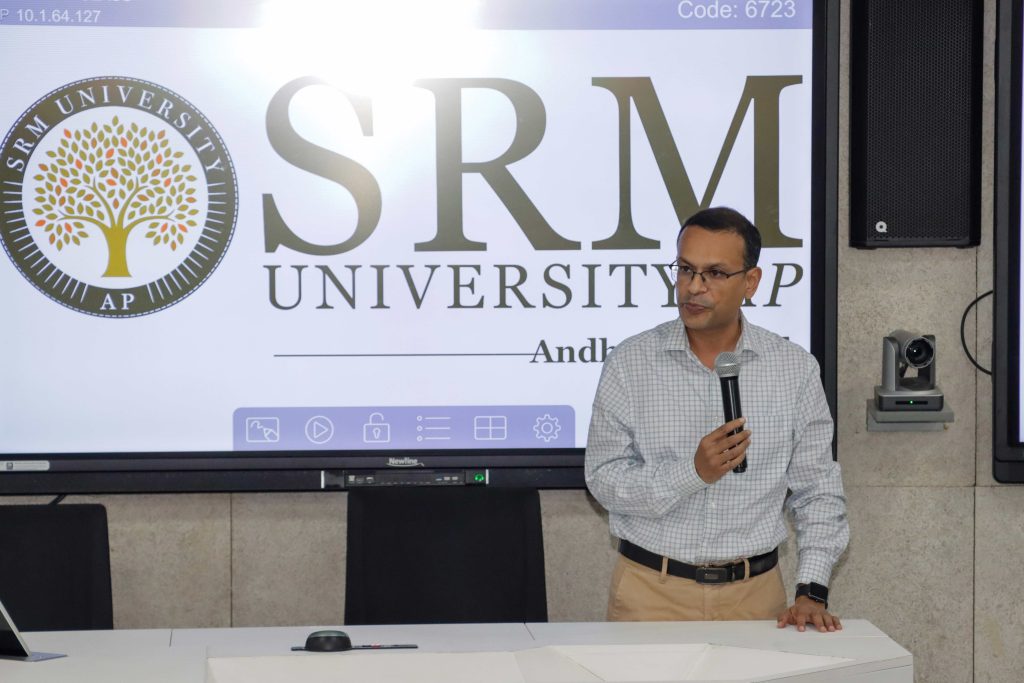
About the Speaker
A distinguished academician from the Indian Institute of Technology, Guwahati, Professor Praveen Kumar had completed his MTech from the Indian Institute of Technology, New Delhi. He was conferred with PhD from the Delft University of Technology, The Netherlands and is an expert in the fields of Electric Vehicles, Wireless Power Transmission and Electrical Machines.
- Published in Departmental News, EEE NEWS, Invited Talks, News
- 1
- 2


